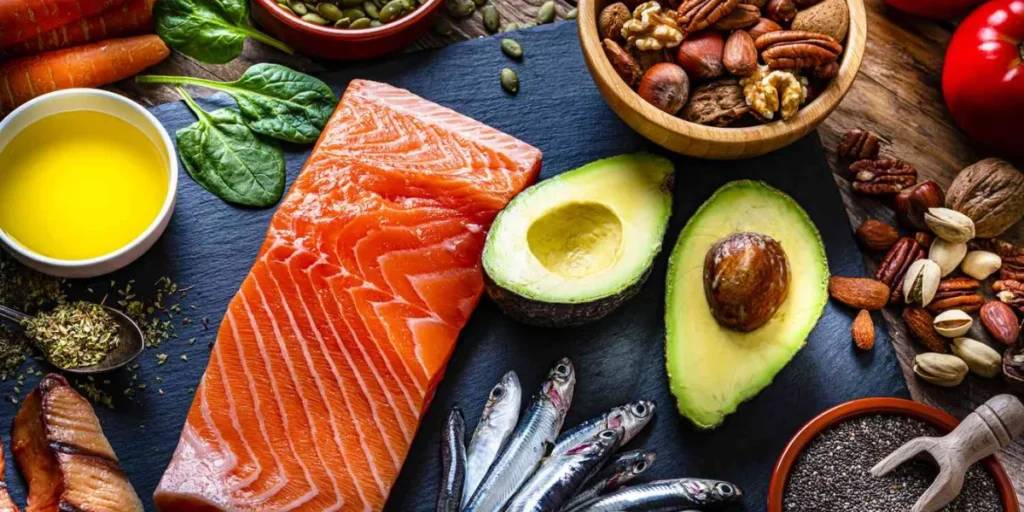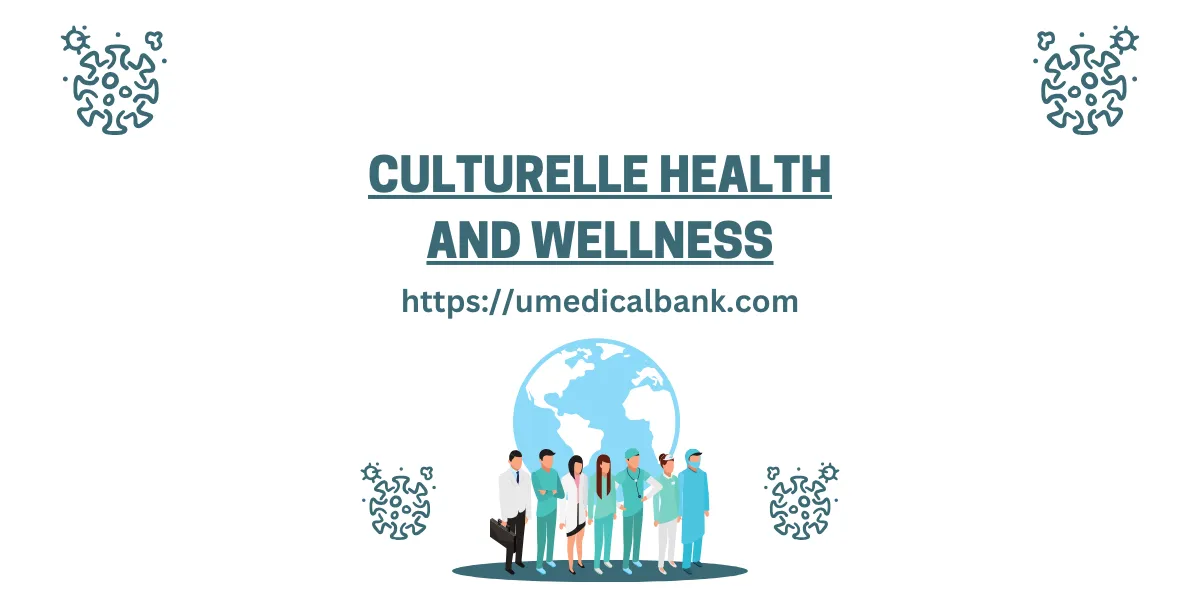When it comes to maintaining a healthy lifestyle, the Mediterranean diet has gained immense popularity in recent years. It’s not just about delicious flavors and vibrant colors; this eating plan is backed by extensive research and offers a multitude of health benefits. But to truly embrace the Mediterranean way of eating, it’s crucial to know what foods to avoid.
In this section, I will walk you through the foods that are not allowed on the Mediterranean diet. By understanding which foods to steer clear of, you can make informed choices that support your health and well-being.
Whether you’re new to the Mediterranean diet or looking to refine your eating habits, this guide will provide you with all the information you need. Let’s dive in and explore the foods that don’t make the cut in this wholesome and nourishing lifestyle.
Table of Contents
ToggleWhat is the Mediterranean Diet?
The Mediterranean diet is a way of eating that is inspired by the traditional dietary patterns of countries bordering the Mediterranean Sea, such as Greece, Italy, and Spain. It is renowned for its numerous health benefits and is often hailed as one of the healthiest diets in the world.
Unlike many modern diets that focus on restriction and deprivation, the Mediterranean diet emphasizes the consumption of whole, natural foods that are rich in nutrients. It is characterized by a high intake of fruits, vegetables, legumes, whole grains, and healthy fats.
The origins of the Mediterranean diet can be traced back to the traditional eating habits of people living in these regions. Their diet relied heavily on locally sourced, seasonal foods, and placed a strong emphasis on fresh, minimally processed ingredients.
The Mediterranean diet is not just about the foods you eat, but also about the way you eat. It encourages mindful eating, savoring each bite, and enjoying meals with family and friends. The diet is often associated with a slower pace of life, which promotes relaxation and overall well-being.
The Key Principles of the Mediterranean Diet
To fully embrace the Mediterranean diet and understand why certain foods should be avoided, it is essential to grasp its key principles. Incorporating these principles into your eating habits will help you enjoy the health benefits associated with this popular dietary pattern.
1. High Consumption of Fruits and Vegetables
One of the fundamental principles of the Mediterranean diet is the emphasis on consuming ample amounts of fresh fruits and vegetables. These natural sources of vitamins, minerals, and antioxidants provide numerous health benefits and should form the foundation of your meals.
2. Whole Grains for Sustained Energy
The Mediterranean diet promotes the consumption of whole grains, which are rich in fiber, essential nutrients, and offer sustained energy throughout the day. Opt for whole wheat bread, brown rice, quinoa, and oats to incorporate these nourishing foods into your diet.
3. Healthy Fats for Optimal Well-being
Unlike many other diets, the Mediterranean diet embraces healthy fats as an essential component. Avocado, olive oil, nuts, and seeds are excellent sources of healthy fats that benefit heart health and provide satiety. Balanced consumption of these fats is a crucial principle to follow.
4. Lean Proteins for Adequate Nutrition
While the Mediterranean diet is not strictly vegetarian, it does emphasize the consumption of lean proteins. Opt for poultry, fish, legumes, and nuts to meet your protein requirements. These food sources offer valuable nutrients without the saturated fat content found in red and processed meats.
5. Limited Meat and Dairy Consumption
The Mediterranean diet recommends limiting the intake of red and processed meats while also moderating dairy consumption. This principle encourages a focus on plant-based sources of nutrition and promotes overall health and wellness.
6. Moderate Consumption of Alcohol, Especially Red Wine
Moderate alcohol intake is a distinctive characteristic of the Mediterranean diet. While not required or suitable for everyone, it suggests moderate enjoyment of red wine during meals. It is essential to be mindful of recommended limits and consider individual health conditions before consuming alcohol.
7. Mindful Eating and Social Connection
The Mediterranean diet not only focuses on the types of foods consumed but also encourages mindful eating and social connectedness during meals. Taking the time to savor and enjoy your food, as well as sharing meals with others, can enhance the overall experience and contribute to a healthier lifestyle.
| Key Principles of the Mediterranean Diet |
|---|
| High Consumption of Fruits and Vegetables |
| Whole Grains for Sustained Energy |
| Healthy Fats for Optimal Well-being |
| Lean Proteins for Adequate Nutrition |
| Limited Meat and Dairy Consumption |
| Moderate Consumption of Alcohol, Especially Red Wine |
| Mindful Eating and Social Connection |
Refined Grains and Processed Foods
When following a Mediterranean diet, it’s important to avoid refined grains and processed foods. These types of food can have negative effects on your health and are not in line with the principles of the Mediterranean lifestyle. Let’s take a closer look at why these foods should be limited or eliminated from your eating plan and explore healthier alternatives.
The Dangers of Refined Grains
Refined grains are grains that have been processed to remove the bran and germ, stripping them of essential nutrients and fiber. This processing method gives them a longer shelf life but significantly reduces their nutritional value.
Consuming refined grains, such as white bread, white rice, and refined pasta, can lead to health issues such as:
- Spikes in Blood Sugar: Refined grains are quickly broken down into sugar, leading to rapid spikes in blood sugar levels. This can cause energy crashes and cravings, contributing to weight gain and an increased risk of type 2 diabetes.
- Inflammation: Refined grains have been linked to chronic inflammation in the body. Inflammation is associated with various diseases, including heart disease, cancer, and autoimmune disorders.
- Poor Digestive Health: Due to their low fiber content, refined grains can contribute to digestive issues, such as constipation and an imbalanced gut microbiome.
The Risks of Processed Foods
Processed foods, on the other hand, are typically high in additives, preservatives, and unhealthy fats. These foods are heavily refined, often containing added sugars, artificial flavors, and trans fats, which can have detrimental effects on your health.
Consuming processed foods, such as packaged snacks, sugary cereals, and frozen meals, can lead to health issues such as:
- Weight Gain and Obesity: Processed foods are often high in calories and low in nutrients, making it easy to consume excess calories without feeling full. This can contribute to weight gain and increase the risk of obesity.
- Increased Heart Disease Risk: Processed foods are often high in unhealthy fats, sodium, and cholesterol. Regular consumption can raise blood pressure, increase bad cholesterol levels, and raise the risk of heart disease.
- Imbalanced Nutrition: Processed foods often lack essential nutrients, such as vitamins, minerals, and fiber, that are important for overall health and well-being.
Healthier Alternatives
When it comes to the Mediterranean diet, replacing refined grains and processed foods with healthier alternatives is key. Here are some examples:
| Refined Grains | Healthier Alternatives |
|---|---|
| White bread | Whole grain bread |
| White rice | Brown rice or quinoa |
| Refined pasta | Whole wheat pasta or zucchini noodles |
Note: When choosing grains, look for “Whole Grain” or “100% Whole Wheat” on the label to ensure they are truly whole and not refined.
As for processed foods, opt for whole, natural alternatives whenever possible:
- Choose fresh fruits and vegetables as snacks instead of packaged chips and cookies.
- Prepare homemade meals using fresh ingredients instead of relying on frozen or pre-packaged meals.
- Swap sugary cereals for whole grain options with no added sugars.
By avoiding refined grains and processed foods and embracing healthier alternatives, you can fully immerse yourself in the Mediterranean diet and reap its numerous health benefits.
Added Sugars and Sweetened Beverages
When it comes to following a Mediterranean diet, it’s important to steer clear of added sugars and sweetened beverages. Excessive sugar intake can have detrimental effects on our health, contributing to weight gain, increased risk of chronic diseases, and dental problems. By focusing on natural, unprocessed foods, you can satisfy your sweet tooth in a healthier way while still enjoying the benefits of the Mediterranean diet.
The Dangers of Added Sugars
Added sugars are sugars that are not naturally present in foods and are instead added during processing. These sugars are often found in sugary drinks, baked goods, candies, and processed foods. Consuming excessive amounts of added sugars can lead to weight gain, increased risk of heart disease, type 2 diabetes, and inflammation in the body.
The Hazards of Sweetened Beverages
Sweetened beverages, such as soda, fruit juices, energy drinks, and sweetened coffee and tea, are major sources of added sugars in our diets. These beverages are often high in calories and have little to no nutritional value. Regular consumption of sweetened beverages has been linked to weight gain, increased risk of type 2 diabetes, and tooth decay.
Satisfying Your Sweet Tooth the Mediterranean Way
Instead of relying on added sugars and sweetened beverages for a sweet fix, the Mediterranean diet offers healthier alternatives. Here are some ways to satisfy your sweet tooth while sticking to the principles of the Mediterranean diet:
- Opt for fresh fruits: Enjoy a variety of fresh fruits that naturally contain sugars, fiber, and important nutrients. Berries, citrus fruits, and melons are particularly delicious and nutritious choices.
- Indulge in dried fruits and nuts: Dried fruits, such as dates and figs, provide natural sweetness and can be enjoyed as a standalone snack or added to yogurt, salads, or oatmeal. Pair them with a handful of nuts for added crunch and healthy fats.
- Flavor with spices: Enhance the natural sweetness of your dishes with spices like cinnamon, nutmeg, or vanilla extract. These spices provide depth of flavor without adding extra sugar.
- Go for dark chocolate: If you’re craving something truly indulgent, reach for a square of dark chocolate with a high cocoa content. It’s rich in antioxidants and can satisfy your chocolate craving with a small portion.
- Try natural sweeteners: If you must sweeten dishes, opt for natural sweeteners like honey or maple syrup in moderation. They add sweetness with added nutritional benefits.
By making these small adjustments and choosing whole, unprocessed foods, you can enjoy the Mediterranean diet’s benefits while satisfying your sweet tooth in a healthier way.
| Foods to Avoid | Healthier Alternatives |
|---|---|
| Added sugars in processed foods | Natural sweeteners like honey or maple syrup in moderation |
| Sweetened sodas and fruit juices | Fresh fruits, homemade infused water, herbal tea |
| Candies, baked goods, and sugary snacks | Dried fruits, nuts, or dark chocolate in moderation |
Unhealthy Fats and Oils
When it comes to the Mediterranean diet, choosing the right fats and oils is essential for maintaining a healthy lifestyle. While this eating plan emphasizes the consumption of healthy fats, there are certain fats and oils that should be limited or avoided altogether.
Unhealthy fats, such as saturated fats and trans fats, are known to contribute to various health problems, including heart disease and obesity. These types of fats are commonly found in processed and fried foods, as well as in certain types of oils.
To promote heart health and overall well-being, it is recommended to limit or avoid foods high in unhealthy fats. Instead, opt for healthier fat options that align with the principles of the Mediterranean diet. These include:
- Extra virgin olive oil: This oil is a cornerstone of the Mediterranean diet and is rich in monounsaturated fats, which can help lower bad cholesterol levels.
- Nuts and seeds: Almonds, walnuts, flaxseeds, and chia seeds are all excellent sources of healthy fats.
- Fatty fish: Fish such as salmon, sardines, and mackerel are rich in omega-3 fatty acids, which have been shown to support heart health.
- Avocados: This fruit is packed with monounsaturated fats, fiber, and various nutrients, making it a great choice for a healthy fat source.
By making conscious choices when it comes to fats and oils, you can ensure that you are following a Mediterranean diet that promotes optimal health and well-being.
| Fats and Oils | Health Benefits |
|---|---|
| Extra virgin olive oil | Rich in monounsaturated fats that can lower bad cholesterol levels. |
| Nuts and seeds | Excellent sources of healthy fats. |
| Fatty fish | Rich in omega-3 fatty acids, which support heart health. |
| Avocados | Packed with monounsaturated fats, fiber, and various nutrients. |
Red and Processed Meats
When following the Mediterranean diet, red meats and processed meats are often limited or avoided altogether. These include beef, pork, lamb, sausages, bacon, and deli meats. While these meats do provide protein, they are often higher in saturated fats and sodium, which can have negative effects on our health.
Processed meats, in particular, have been linked to an increased risk of chronic diseases such as cardiovascular disease and certain types of cancers. The World Health Organization (WHO) classifies processed meats as carcinogens, highlighting the importance of reducing their consumption.
But why are red and processed meats discouraged on the Mediterranean diet? The answer lies in the diet’s focus on whole, natural foods that are minimally processed. Reducing or avoiding red and processed meats is aligned with the overall goal of prioritizing lean sources of protein and emphasizing plant-based foods.
Why Avoid Red and Processed Meats?
There are several reasons behind the recommendation to limit red and processed meats on the Mediterranean diet:
- High Saturated Fat Content: Red meats, such as beef and lamb, contain higher levels of saturated fat compared to leaner protein sources like poultry or fish. Diets high in saturated fats have been associated with an increased risk of heart disease. By choosing leaner protein options, we can help maintain cardiovascular health.
- Increased Sodium Intake: Processed meats, like sausages and deli meats, are often high in sodium, which can contribute to high blood pressure and increase the risk of heart disease. Reducing processed meat consumption helps maintain healthy sodium levels.
- Potential Carcinogenic Effects: Studies have shown that high consumption of processed meats can increase the risk of colorectal cancer. The processing methods used in the production of these meats, such as smoking, curing, and adding preservatives, can create harmful compounds that may contribute to the development of cancer.
To ensure a healthier alternative to red and processed meats, the Mediterranean diet encourages the consumption of lean proteins such as fish, poultry, legumes, and nuts. These options provide essential nutrients, including omega-3 fatty acids, fiber, and plant-based protein. Incorporating these alternatives into your meals can help you reap the benefits of the Mediterranean diet while reducing the potential risks associated with red and processed meats.

Dairy Products
While dairy products are not strictly prohibited on the Mediterranean diet, their consumption is typically limited. This is because dairy products are often high in saturated fats, which can increase the risk of certain health issues when consumed in excess.
However, there are some dairy products that can be included in moderation as part of a Mediterranean eating plan. Examples include:
- Fresh, low-fat milk
- Greek yogurt
- Small amounts of feta or goat cheese
These dairy options are lower in saturated fats and can provide essential nutrients like calcium and protein, which are important for overall health.
For those who choose to limit or avoid dairy altogether, there are plenty of delicious alternatives available. Many plant-based milks, such as almond milk or oat milk, can be enjoyed as substitutes for cow’s milk. Additionally, there are dairy-free yogurts and cheeses made from ingredients like soy or nuts which can be incorporated into a Mediterranean diet.
It’s important to consult with a healthcare professional or Registered Dietitian to determine the best approach for you when it comes to dairy consumption within the context of a Mediterranean diet.
Tasty Dairy Alternatives for a Mediterranean Diet
| Dairy Product | Dairy Alternative |
|---|---|
| Milk | Almond milk, oat milk, soy milk |
| Yogurt | Coconut milk yogurt, almond milk yogurt, soy milk yogurt |
| Cheese | Plant-based cheeses made from nuts or soy |
Highly Processed and Packaged Foods
When following the Mediterranean diet, it is crucial to avoid highly processed and packaged foods. These types of foods not only lack nutritional value, but they can also contribute to various health issues.
Highly processed foods are often loaded with added sugars, unhealthy fats, and artificial additives. These ingredients can increase the risk of obesity, heart disease, and other chronic conditions. Packaged foods, on the other hand, are typically high in sodium and preservatives, which can negatively impact blood pressure levels and overall well-being.
To maintain the integrity of the Mediterranean diet, it is important to focus on whole, natural foods that are minimally processed. These foods not only provide essential nutrients but also offer a variety of flavors and textures to enhance your meals.
Here are some examples of highly processed and packaged foods to avoid:
- Sugary cereals
- Pre-packaged snacks
- Soft drinks and sugary beverages
- Instant noodles and rice
- Frozen meals
- Canned soups and sauces
- Processed meats
- Chips and crackers
Instead, opt for whole foods that are staples of the Mediterranean diet:
- Fresh fruits and vegetables
- Whole grains, such as brown rice and quinoa
- Legumes, including chickpeas and lentils
- Healthy fats, like olive oil and avocados
- Lean sources of protein, such as fish, poultry, and eggs
- Nuts and seeds
By making healthier choices and avoiding highly processed and packaged foods, you can fully embrace the Mediterranean diet and reap its many benefits for your overall health and well-being.
| Highly Processed and Packaged Foods to Avoid | Whole Foods to Embrace |
|---|---|
| Sugary cereals | Fresh fruits and vegetables |
| Pre-packaged snacks | Whole grains like brown rice and quinoa |
| Soft drinks and sugary beverages | Legumes like chickpeas and lentils |
| Instant noodles and rice | Healthy fats like olive oil and avocados |
| Frozen meals | Lean sources of protein like fish, poultry, and eggs |
| Canned soups and sauces | Nuts and seeds |
| Processed meats | |
| Chips and crackers |
Alcohol
When it comes to the Mediterranean diet, a distinctive feature is the inclusion of alcohol, particularly red wine, in moderate amounts. Incorporating alcohol into your Mediterranean lifestyle can be a pleasurable social experience, but it’s essential to understand the guidelines and limitations to ensure you maintain a healthy balance.
Red wine, in particular, has been associated with various health benefits due to its rich concentration of antioxidants, such as resveratrol. These antioxidants may help reduce inflammation, promote heart health, and provide protection against certain diseases.
The Recommendations:
- Moderation is key: It’s important to consume alcohol in moderate amounts and within recommended limits. This means up to one drink per day for women and up to two drinks per day for men, according to the Dietary Guidelines for Americans.
- Choose red wine: Red wine, such as Cabernet Sauvignon, Pinot Noir, or Merlot, is often recommended due to its higher concentration of beneficial compounds. This doesn’t mean other forms of alcohol are entirely off-limits, but red wine is typically the preferred choice within the Mediterranean diet.
- Be mindful of portion sizes: Keep in mind that a standard drink equates to 5 ounces (148 mL) of wine, 1.5 ounces (44 mL) of distilled spirits, or 12 ounces (355 mL) of beer. Understanding portion sizes will help you consume alcohol in moderation and prevent excessive intake.
It’s worth noting that the benefits of alcohol are not exclusive to the Mediterranean diet. Moderate alcohol consumption may have positive effects on health when practiced as part of a balanced lifestyle. However, excessive or irresponsible alcohol intake can lead to numerous health problems, including liver damage and increased risk of addiction.
To fully embrace the Mediterranean diet’s overall health benefits, it’s crucial to pair alcohol consumption with a nutrient-rich, plant-based eating plan. Incorporating various fruits, vegetables, whole grains, lean proteins, and healthy fats will ensure you are experiencing the full range of advantages associated with this lifestyle.
Remember, moderation is key, and if you choose not to consume alcohol, you can still follow a healthy Mediterranean diet without compromising the principles and benefits it offers.
Conclusion
In conclusion, adhering to the Mediterranean diet involves avoiding certain foods and focusing on consuming whole, natural foods instead. By understanding the foods that are not allowed on this eating plan, you can make informed choices that align with its principles and reap the numerous health benefits it offers.
It is important to limit or eliminate refined grains and processed foods from your Mediterranean diet. These foods lack essential nutrients and can contribute to weight gain and chronic diseases. Instead, opt for whole grains and minimally processed foods to nourish your body.
Avoiding added sugars and sweetened beverages is also crucial on the Mediterranean diet. Excessive sugar consumption can lead to weight gain, diabetes, and other health issues. Satisfy your sweet tooth with naturally sweet fruits or enjoy an occasional small serving of honey or dark chocolate.
Furthermore, be mindful of your fat and oil choices. Avoid unhealthy fats such as trans fats and limit saturated fats. Instead, opt for healthy fats found in nuts, seeds, olive oil, and fatty fish like salmon. These fats provide essential nutrients and are beneficial for heart health.
FAQ
What foods should be avoided on the Mediterranean diet?
The foods that should be avoided on the Mediterranean diet include refined grains, processed foods, added sugars, sweetened beverages, unhealthy fats and oils, red and processed meats, excessive dairy products, highly processed and packaged foods, and alcohol consumed in excess.
What is the Mediterranean diet?
The Mediterranean diet is an eating plan that is based on the traditional foods and cooking styles of countries bordering the Mediterranean Sea. It focuses on whole, natural foods such as fruits, vegetables, whole grains, legumes, nuts, seeds, and healthy fats.
What are the key principles of the Mediterranean diet?
The key principles of the Mediterranean diet include high consumption of fruits, vegetables, whole grains, legumes, nuts, and seeds; moderate consumption of fish and poultry; limited consumption of red and processed meats; use of healthy fats such as olive oil; and a moderate intake of alcohol, particularly red wine.
Why should refined grains and processed foods be avoided on the Mediterranean diet?
Refined grains and processed foods lack important nutrients and are often high in unhealthy fats, added sugars, and sodium. These foods can contribute to weight gain, inflammation, and an increased risk of chronic diseases such as heart disease and type 2 diabetes.
Why should added sugars and sweetened beverages be avoided on the Mediterranean diet?
High intake of added sugars and sweetened beverages has been linked to obesity, tooth decay, and an increased risk of chronic diseases like diabetes and cardiovascular disease. These foods provide little nutritional value and can lead to energy crashes and cravings.
Which fats and oils should be avoided on the Mediterranean diet?
The Mediterranean diet recommends avoiding unhealthy fats and oils such as trans fats and hydrogenated oils. These fats can increase the risk of heart disease and inflammation. Instead, focus on consuming healthy fats like olive oil, avocados, and nuts.
Why should red and processed meats be limited on the Mediterranean diet?
Red and processed meats have been associated with an increased risk of cardiovascular disease, certain cancers, and other health issues. The Mediterranean diet encourages choosing lean protein sources like fish, poultry, legumes, and nuts instead.
Why is dairy consumption limited on the Mediterranean diet?
While dairy products can be included in moderation, the Mediterranean diet favors alternatives like yogurt and cheese, which are lower in saturated fat. It promotes a higher intake of plant-based calcium sources such as leafy greens, legumes, and fortified plant milk.
Why should highly processed and packaged foods be avoided on the Mediterranean diet?
Highly processed and packaged foods often contain high amounts of unhealthy fats, added sugars, sodium, and artificial additives. These foods offer little nutritional value and can contribute to weight gain, inflammation, and an increased risk of chronic diseases.
How should alcohol be consumed on the Mediterranean diet?
Moderate consumption of alcohol, particularly red wine, is a component of the Mediterranean diet. It’s important to consume alcohol in moderation, which means up to one drink per day for women and up to two drinks per day for men. Excessive alcohol intake can lead to health problems.











